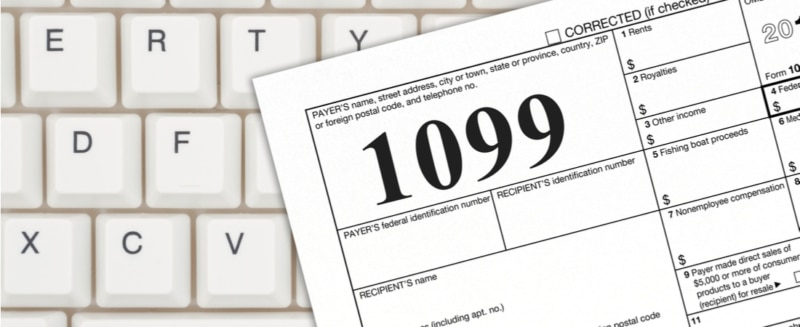Each year, the IRS sends out charming letters telling you that you didn’t report some income on your tax return. Sometimes those CP-2000 letters come as good news, like one did for a client of mine with Alzheimer’s disease whose family found $100,000 worth of bank accounts when the IRS notice showed unreported interest income.
But often the letter doesn’t come as such a nice surprise, such as when you didn’t know a certain kind of income was taxable. IRS gets 1099-type reports from people about your activities—and it wants you to report the income. What are common sources of surprise when filing taxes?
Unemployment income. This income is always taxable on the IRS level. Most states also tax unemployment. Usually, this income is left off the tax return for two reasons. First because you didn’t know it was taxable. Second, by the time you prepare your return, you may have forgotten you were unemployed during the previous year. So when you sign up for unemployment, remember to have them take out withholding.
Disability income. This is more complicated than it looks—and quite confusing. Please review your situation with a tax professional. There are two kinds of disability: state disability and funds from insurance companies—each with two types of taxability.
State disability:
- This is generally not taxable if you went out on disability in the first place.
- If you were already on unemployment and filed for disability while collecting unemployment benefits, your disability payments are taxable. They are considered unemployment income.
- Workers compensation benefits are not taxable.
Disability insurance:
- If your employer paid the premiums, most likely, your benefits are taxable.
- If you paid the premiums and never took a medical expense deduction, it’s quite likely that this will be a tax-free benefit.
Barter income. Anytime you trade your services or products for someone else’s, you have engaged in barter. As the trade is designed to be a fair exchange, you have to wonder why this should be reportable. The net effect should be zero, right? Not quite. For example, if you have a mobile dog grooming business and trade your services (worth $100) for gardening services for your home (worth $100), your business has a sale, but you don’t have a business deduction. So you have a net profit of $100—and so does the gardener, right? Folks who do a lot of barter tend to join barter clubs, which issue a 1099-B.
Cancellation of debt income. When this 1099-C arrives, it’s usually utterly shocking. You think you’ve dumped your credit card debt or upside-down mortgage, but then along comes this form, and you suddenly find yourself owing taxes on the debt you dumped. There are a number of ways around this kind of taxable income, depending on the source.
With about 4 million words in the current tax code, it’s easy to make mistakes. But don’t worry. The IRS doesn’t generally issue penalties on the first go-round.
Eva Rosenberg, EA is the publisher of TaxMama.com , where your tax questions are answered. Eva is the author of several books and ebooks, including the new edition of Small Business Taxes Made Easy. Eva teaches a tax pro course at IRSExams.com and tax courses you might enjoy at http://www.cpelink.com/teamtaxmama.






